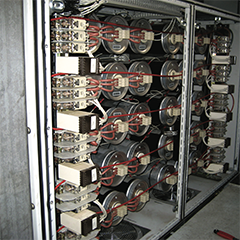Wind turbine fires: expect the unexpected
Nobody expects a wind turbine to catch fire, but it happens. Unfortunately, it is unknown just how much it happens, and this opens the industry up to significant losses due to a lack of best practice when managing fire risk.
As found in our recent report, ‘In the Line of Fire’, there is a serious lack of data and transparency around fire hazards at wind farms. Often, the logic goes that a lack of data must mean that it’s a tiny risk, and one that will never happen on your own wind farm.
In a cost-competitive, optimization-driven market like wind power, who can blame them?
With the pressure to reduce LCOE and development costs for wind turbines, corners can often get cut and protecting turbines for low frequency events is considered financially unjustifiable.
But as the Texas freeze has shown, the unexpected can hit at any moment for power producers, and when it does, it can spell disaster for energy providers.
The point of safety is to take proactive steps to reduce the chances of damage to assets or health. When the risk is unknown, due to a lack of a formal system in place to collect, measure, and share data around wind turbine fires, wind farm owners and operators have no baseline to form best practice.
For your assets to be fully covered and to prevent a huge loss of capital or worse, life, developers need to expect wind turbine fires to occur.
Imagine a 150 meter-high, titanium-based giant propelling three sharp and curved fiberglass blades at speeds as fast as a Formula 1 car. Now imagine it on fire.
Wind turbine fires: expect the unexpected
Nobody expects a wind turbine to catch fire, but it happens. Unfortunately, it is unknown just how much it happens, and this opens the industry up to significant losses due to a lack of best practice when managing fire risk.
As found in our recent report, ‘In the Line of Fire’, there is a serious lack of data and transparency around fire hazards at wind farms. Often, the logic goes that a lack of data must mean that it’s a tiny risk, and one that will never happen on your own wind farm.
In a cost-competitive, optimization-driven market like wind power, who can blame them?
With the pressure to reduce LCOE and development costs for wind turbines, corners can often get cut and protecting turbines for low frequency events is considered financially unjustifiable.
But as the Texas freeze has shown, the unexpected can hit at any moment for power producers, and when it does, it can spell disaster for energy providers.
The point of safety is to take proactive steps to reduce the chances of damage to assets or health. When the risk is unknown, due to a lack of a formal system in place to collect, measure, and share data around wind turbine fires, wind farm owners and operators have no baseline to form best practice.
For your assets to be fully covered and to prevent a huge loss of capital or worse, life, developers need to expect wind turbine fires to occur.
Imagine a 150 meter-high, titanium-based giant propelling three sharp and curved fiberglass blades at speeds as fast as a Formula 1 car. Now imagine it on fire.
To read the full content,
please download the PDF below.



























